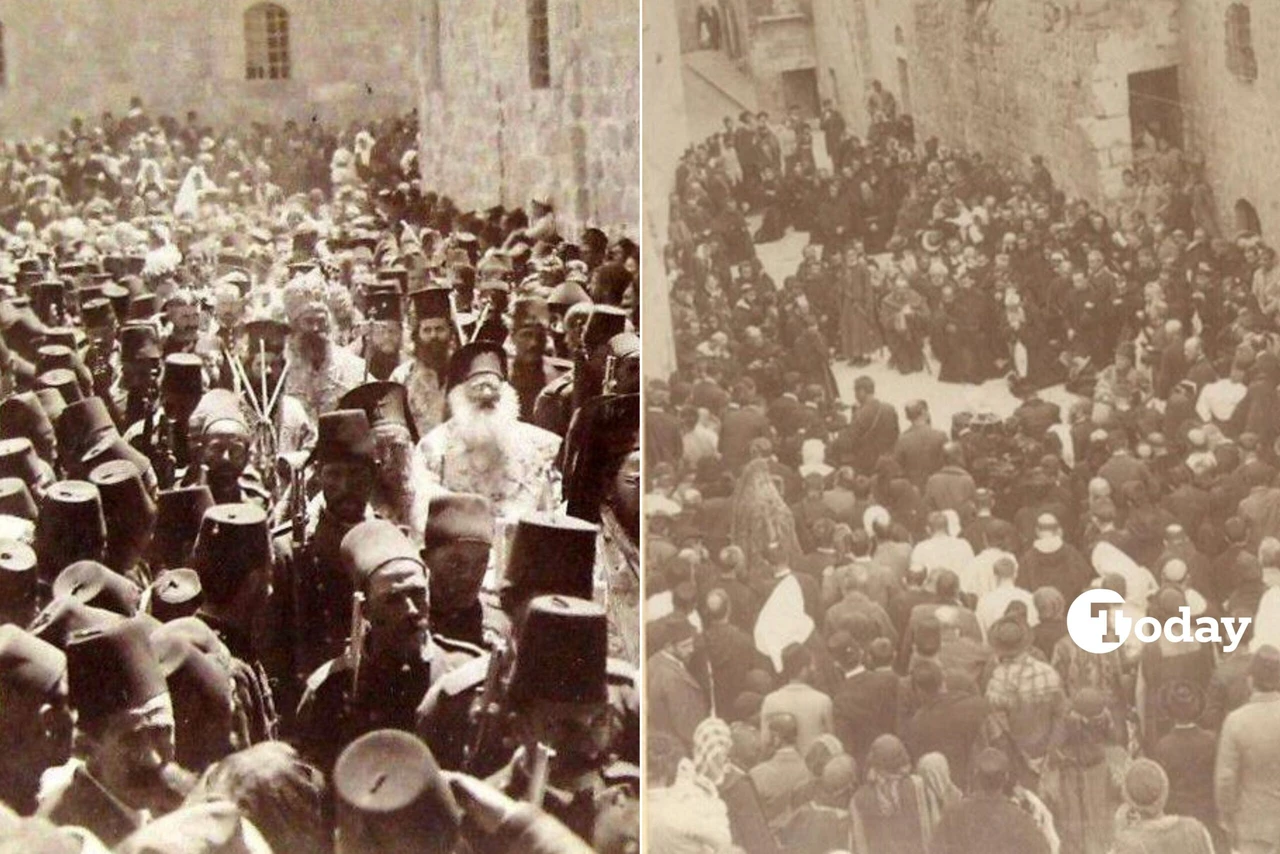Could activist Aysenur Eygi’s killing influence ICJ case against Israel?
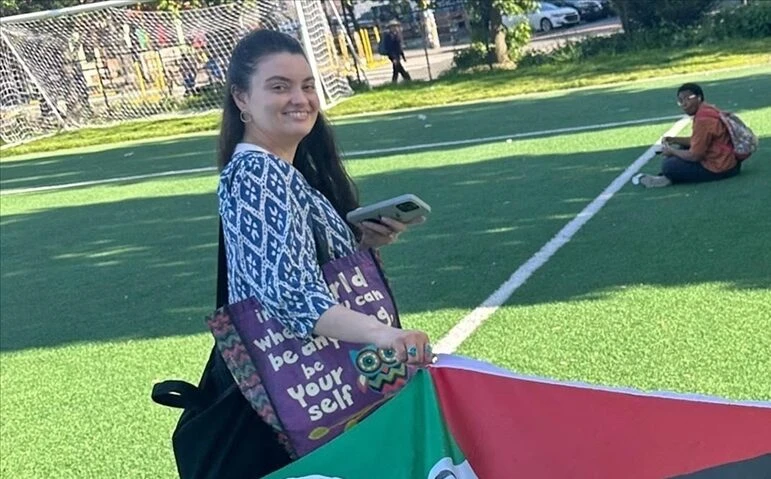 American-Turkish activist Aysenur Ezgi Eygi holding a Palestinian flag while heading to a protest, United States, September 2024. (AA Photo)
American-Turkish activist Aysenur Ezgi Eygi holding a Palestinian flag while heading to a protest, United States, September 2024. (AA Photo)
The killing of U.S.-Turkish activist Aysenur Ezgi Eygi by Israeli forces during a peaceful protest in the West Bank has added new urgency to Türkiye’s involvement in the genocide case against Israel at the International Court of Justice (ICJ).
Eygi, a 26-year-old dual citizen, was shot by Israeli soldiers on September 6, 2024, while protesting the expansion of illegal Israeli settlements near Nablus.
Her death has outraged Türkiye and drawn international condemnation.
Türkiye is expected to use Aysenur Eygi’s death as evidence in the ongoing ICJ genocide lawsuit, which accuses Israel of committing genocide in Palestine.
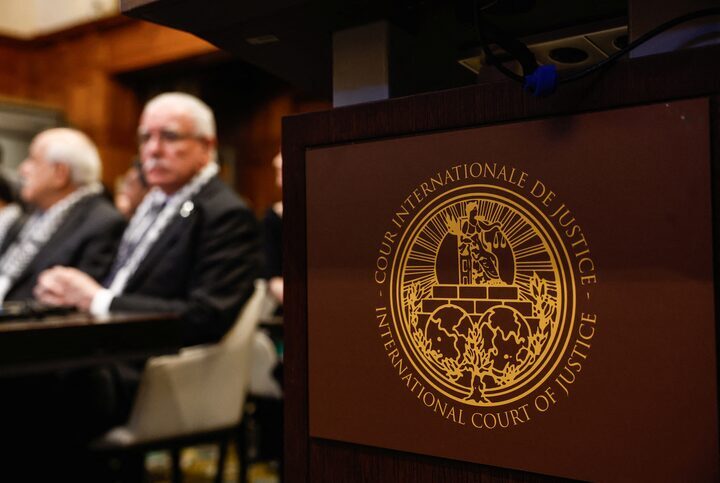
How Türkiye joined South Africa’s case against Israel at ICJ
The ICJ genocide lawsuit, originally filed by South Africa in 2023, accuses Israel of violating the 1948 Genocide Convention during its military offensives in Gaza, which have left over 41,118 Palestinians dead as of Sept. 12.
This figure, provided by the health ministry in Gaza, includes 34 deaths reported within the last 24 hours, while over 95,125 people have been wounded since the conflict began.
Türkiye joined the case earlier this year, aligning with other nations such as Nicaragua, Spain, Mexico, and Libya.
“We will continue to defend Aysenur’s rights and the rights of our Palestinian brothers and sisters,” Türkiye’s Justice Minister Yilmaz Tunc emphasized.
He also confirmed that Türkiye would push for the U.N. to take immediate action, stating that the findings from Eygi’s case would be added to the ICJ proceedings.
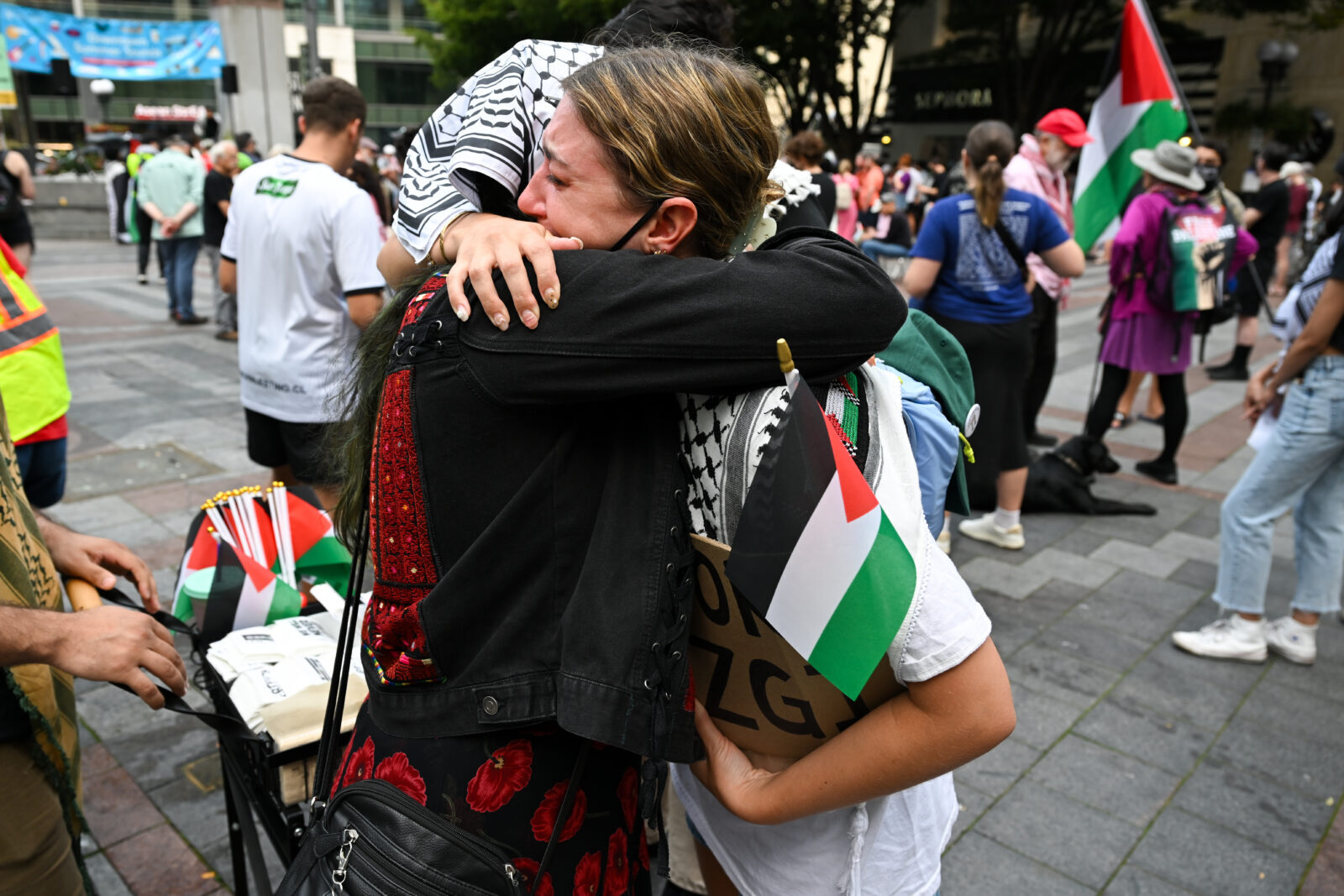
Turkish activist Eygi’s family, witnesses challenge Israeli claims about her death
Eygi’s killing has drawn comparisons to the 2022 shooting of Palestinian-American journalist Shireen Abu Akleh. In both cases, Israeli forces claimed the deaths were accidental. Israeli military officials initially suggested that Eygi’s death was “highly likely” the result of indirect fire during a riot.
However, witnesses, including Israeli activist Jonathan Pollak, contradicted this account, saying that Eygi was shot during a moment of calm and posed no threat to Israeli soldiers. Eygi’s family also rejected the Israeli narrative, demanding a thorough investigation.
According to Al Jazeera, Turkish authorities are trying to persuade Eygi’s family to agree to an autopsy to gather further evidence. The evidence from this procedure could potentially be used in the ICJ’s genocide case, helping to substantiate Türkiye’s accusations against Israel.
Eygi’s mother, Rabia Birden, urged officials in Türkiye to seek justice for her daughter: “The only thing I ask of our state is to seek justice for my daughter.” Türkiye’s government responded swiftly, launching its own investigation into the killing and preparing to issue international arrest warrants for the Israeli soldiers involved.
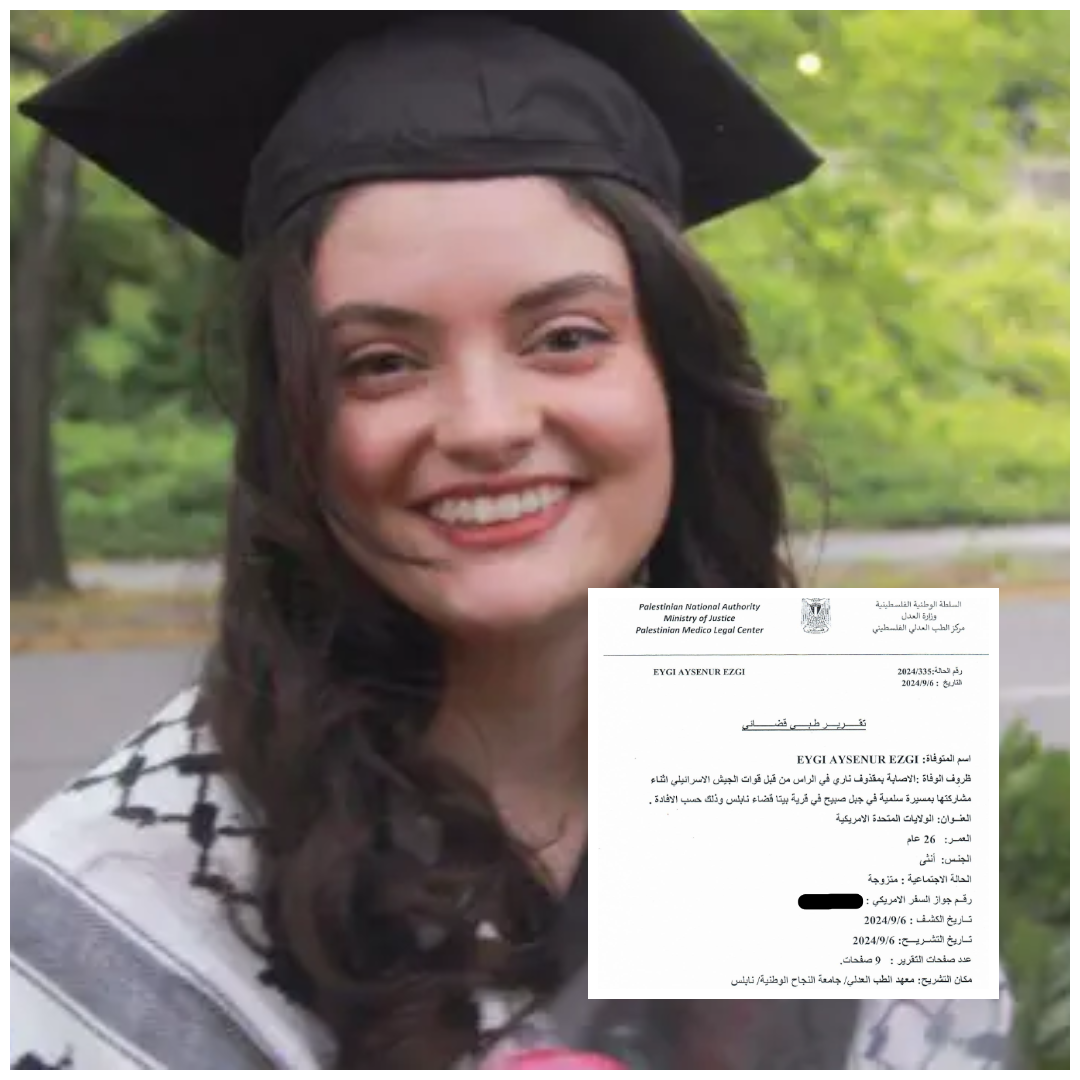
Forensic autopsy report reveals shocking details of Eygi’s death
A forensic autopsy, carried out by Dr. Reyan el-Ali and Dr. Muhammed es-Salebi at An-Najah National University, has revealed new details about the severity of Eygi’s injuries.
The autopsy report confirmed that Eygi died from a gunshot wound to the head, which caused severe brain trauma, skull fractures, and hemorrhaging. The bullet, which entered through the left side of her skull, caused significant damage, including brain swelling and subarachnoid bleeding.
According to the autopsy, multiple bullet fragments were found scattered throughout her brain, which further complicated her injuries. These findings have been handed over to the Nablus Public Prosecutor for further investigation.
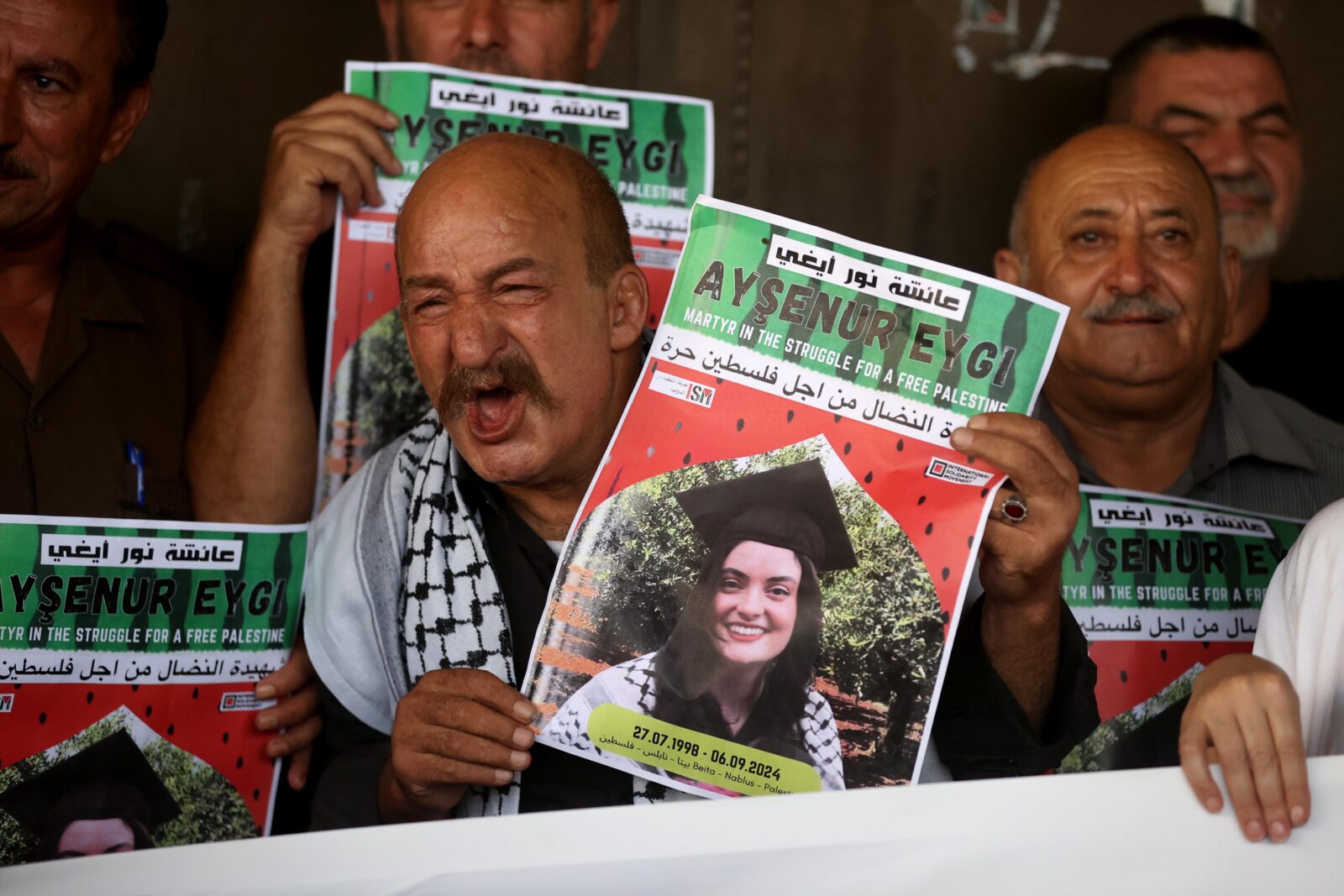
Eygi’s death adds pressure on US-Israeli relations as criticism of Israel’s actions grows
The killing of American-Turkish activist Eygi comes at a critical moment in U.S.-Israeli relations. The Biden administration, which has traditionally supported Israel, faced growing pressure to hold Israel accountable for its treatment of American citizens in the occupied Palestinian territories.
President Joe Biden, initially cautious, later called for “full accountability” for Eygi’s death. Strong statements from Secretary of State Antony Blinken, who urged Israel to change its military practices, particularly its rules of engagement in the West Bank followed this.
Critics of Israel in the U.S. argue that American citizens have been killed in similar incidents before, with little consequence for Israeli soldiers. National Security Council spokesperson John Kirby praised the Israel Defense Forces (IDF) for launching an internal investigation into the Turkish activist’s killing, but human rights groups have expressed skepticism.
In many previous cases, such investigations did not result in meaningful action. Following the 2022 killing of journalist Shireen Abu Akleh, no Israeli soldier was punished, and critics fear Eygi’s case may face the same outcome.
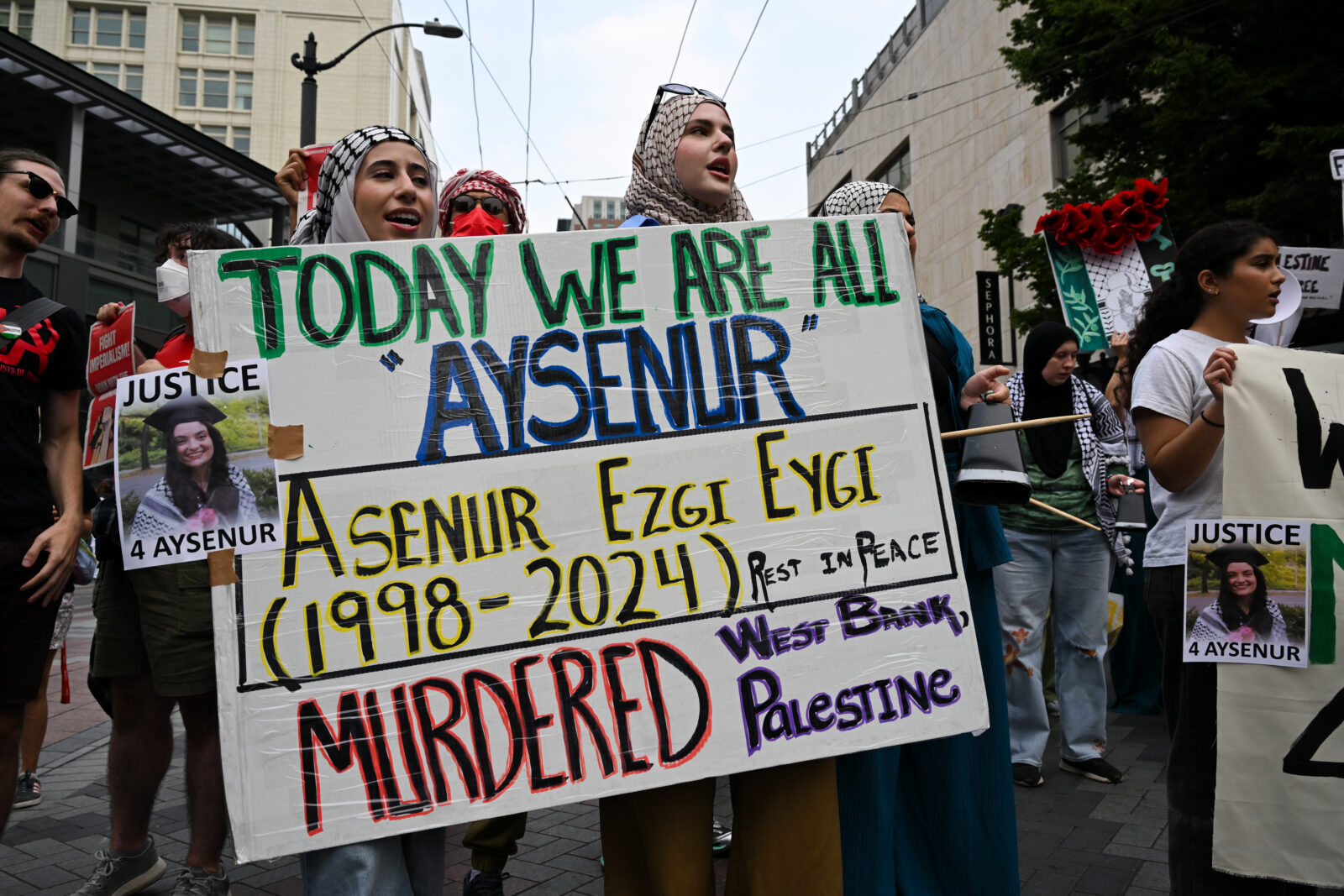
Türkiye’s legal strategy: Using Turkish activist’s case to strengthen the ICJ genocide lawsuit
Türkiye’s involvement in the ICJ case against Israel is part of a broader strategy to challenge Israel’s military actions in international courts. By adding Eygi’s death to the genocide case, Türkiye aims to build a stronger argument that Israel’s actions are part of a larger pattern of targeting civilians, particularly those advocating for Palestinian rights.
South Africa’s genocide case, which centers on Israel’s military operations in Gaza, has already drawn significant international attention. The case is supported by several nations, including Nicaragua, Mexico, and Spain.
The ICJ began hearing the case in January 2024 and has issued provisional orders three times, demanding that Israel halt its offensives in Gaza. However, Israel has yet to comply with these orders.
Türkiye’s participation in the ICJ genocide lawsuit and its decision to submit evidence from Eygi’s killing could further pressure the court to take decisive action.
Aysenur Eygi’s death and the broader accusations of excessive use of force against protesters are expected to be key components of Türkiye’s legal strategy at the ICJ. South Africa has already committed to submitting a memorial next month, and Türkiye plans to include evidence from its investigation into Eygi’s killing in its own submissions to the court.
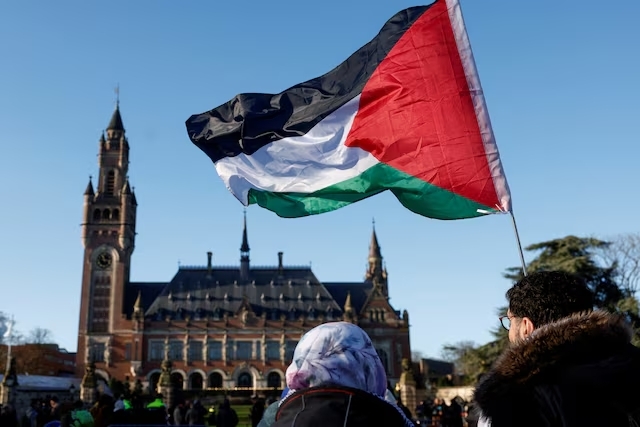
Potential consequences of ICJ ruling for Israel’s military practices, international relations
If the ICJ rules that Israel’s actions in Gaza and the West Bank constitute genocide, it could have far-reaching diplomatic and legal consequences.
Although the ICJ’s rulings are not binding, they carry significant moral and diplomatic influence. A ruling against Israel could lead to calls for sanctions or other punitive measures from the international community, which could further isolate Israel on the global stage.
For Türkiye, the ICJ genocide lawsuit represents a significant opportunity to lead the international effort to hold Israel accountable. President Recep Tayyip Erdogan has long positioned himself as a defender of Palestinian rights, and the inclusion of Eygi’s death in the case signals Türkiye’s commitment to challenging Israel’s military practices.
Eygi’s death is not seen as an isolated incident but as part of a broader context of violence against civilians in the occupied territories.
Eygi’s killing also draws attention to the role of international human rights organizations, which have long criticized Israel’s actions in the West Bank and Gaza.
By presenting the Turkish activist’s case at the ICJ, Türkiye hopes to rally further support from these groups, as well as from other nations, to put more pressure on Israel to change its military tactics.
The outcome of the ICJ genocide lawsuit could significantly impact how the international community engages with Israel in the future, particularly on issues of human rights and accountability for civilian casualties.

